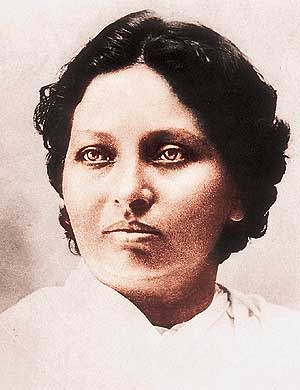 I had never read or heard anything like this in the religious books of the Hindus; I realized, after reading the 4th Chapter of St. John's Gospel, that Christ was truly the Divine Saviour He claimed to be, and no one but He could transform and uplift the downtrodden womanhood of India and of every land, writes Pandita Ramabai.
I had never read or heard anything like this in the religious books of the Hindus; I realized, after reading the 4th Chapter of St. John's Gospel, that Christ was truly the Divine Saviour He claimed to be, and no one but He could transform and uplift the downtrodden womanhood of India and of every land, writes Pandita Ramabai.
Deeper Hindu Studies and Skepticism
While staying in Calcutta we became acquainted with many learned Pandits. Some of them requested me to lecture to the Pardah women on the duties of women according to the Shastras. I had to study the subject well before I could lecture on it, so I bought the books of the Hindu law published in Calcutta. Besides reading them I read other books which would help me in my work. While reading the Dharma Shastras I carne to know many things which I never knew before. There were contradictory statements about almost everything. What one book said was most righteous, the other book declared as being unrighteous. While reading the Mahabharata I found the following: "The Vedas differ from each other; Smrities, that is, books of sacred laws, do not agree with one another; the secret of religion is in some hidden place. The only way is that which is followed by great men."
This I found true of about everything, but there were two things on which all those books, the Dharma Shastras, the sacred epics, the Puranas and modern poets, the popular preachers of the present day and orthodox high-caste men were agreed: women of high and low caste, as a class, were bad, very bad, worse than demons, and that they could not get Moksha as men. The only hope of their getting this much-desired liberation from Karma and its results, that is, countless millions of births and deaths and untold suffering, was the worship of their husbands. The husband is said to be the woman's god; there is no other god for her. This god may be the worst sinner and a great criminal; still HE IS HER GOD, and she must worship him. She can have no hope of getting admission into Svarga, the abode of the gods, without his pleasure; and if she pleases him in all things, she will have the privilege of going to Svarga as his slave, there to serve him and be one of his wives among the thousands of the Svarga harlots who are presented to him by the gods in exchange for his wife's merit. The woman is allowed to go into higher existence thus far but to attain Moksha or liberation, she must perform such great religious acts as will obtain for her the merit by which she will be reincarnated as a high caste man, in order to study Vedas and the Vedanta, and thereby get the knowledge of the true Brahma and be amalgamated in it.
The extraordinary religious acts which help a woman to get into the way of getting Moksha are utter abandonment of her will to that of her husband. She is to worship him with whole-hearted devotion as the only god, to know and see no other pleasure in life except in the most degraded slavery to him. The woman has no right to study the Vedas and Vedanta, and without knowing them, no one can know the Brahma. Without knowing Brahma, no one can get liberation; therefore no woman as a woman can get liberation, that is, Moksha. Q.E.D. The same rules are applicable to the Shudras. The Shudras must not study the Veda and must not perform the same religious act which a Brahman has a right to perform. The Shudra who hears the Veda repeated must be punished by having his ears filled with liquefied lead. The Shudra who dares to learn a verse or verses of the Veda must be punished by having intensely hot liquor poured down his throat. This would no doubt be done to the Shudra who violates the sacred law, if he were left to the tender mercies of the Brahman. His only hope of getting liberation is in serving the three high castes as their lifelong slave. Then he will earn merit enough to be reincarnated in some higher caste, and in the course of millions of years, he will be born as a Brahman, learn the Vedas and Vedantas, and get knowledge of the Brahma and be amalgamated in it. Such is the hope of final liberation held out by the Shasttas to women and to the Shudras.
As for the low-caste people, the poor things have no hope of any sort. They are looked upon as being very like the lower species of animals, such as pigs; their very shadow and the sound of their voices are defiling; they have no place in the abode of the gods, and no hope of getting liberation, except that they might perchance be born among the higher castes after having gone through millions of reincarnations. The things which are necessary to make it possible for them to be born in higher castes are that they should be contented to live in a very degraded condition, serving the high caste people as their bondservants, eating the leavings of their food in dirty broken earthen vessels, wearing filthy rags and clothes thrown away from the dead bodies of the high-caste people. They may sometimes get the benefit of coming in contact with the shadow of a Brahman and have a few drops of water from his hand or wet clothes thrown at them and feel the air which has passed over the sacred persons of Brahmans. These things are beneficial to the low-caste people, but the Brahmans lose much. of their own hard-earned merit by letting the low-caste people get these benefits!
The low-caste people are never allowed to enter the temples where high-caste men worship gods. So the poor degraded people find shapeless stones and broken pots, smear them with red paint, set them up under trees and on road sides, or in smal
l temples which they build themselves, where Brahmans do not go for fear of losing their caste, and worship, in order to satisfy the cravings of their spiritual nature. Poor, poor people! How very sad their condition is no one who has not seen can realize. Their quarters are found outside every village or town where the sacred feet of the pious Brahmans do not walk! These are the two things, upon which all Shastras and others are agreed.
I had a vague idea of these doctrines of the Hindu religion from my childhood, but while studying the Dharma Shastras, they presented themselves to my mind with great force. My eyes were being gradually opened; I was waking up to my own hopeless condition as a woman, and it was becoming dearer and dearer to me that I had no place anywhere as far as religious consolation was concerned. I became quite dissatisfied with myself. I wanted something more than the Shastras could give me, but I did not know what it was that I wanted.
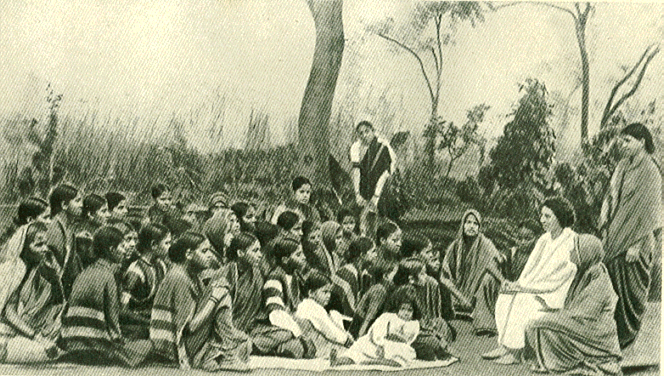
One day my brother and I were invited by Keshab Chandra Sen to his house. He received us very kindly, took me into the inner part of the house, and introduced me to his wife and daughters. One of them was just married to the Maharaja of Cuch Behar, and the Brahmos and others were criticizing him for breaking the rule which was laid down for all Brahmos, that is, not to marry or give girls in marriage under fourteen years of age. He and his family showed great kindness to me, and when parting, he gave me a copy of one of the Vedas.
He asked if I had studied the Vedas. I answered in the negative, and said that women were not fit to read the Vedas and they were not allowed to do so. It would be breaking the rules of religion, if I were to study the Vedas. He could not but smile at my declaration of this Hindu doctrine. He said nothing in answer, but advised me to study the Vedas, and Upanishads. New thoughts were awakening in my heart. I questioned myself as to why I should not study Vedas and Vedanta. Soon I persuaded myself into the belief that it was not wrong for a woman to read the Vedas. So I began first to read the Upanishads, then the Vedanta, and the Veda. I became more dissatisfied with myself. In the meanwhile my brother died.
As my father wanted me to be well versed in our religion, he did not give me in marriage when a little child. He had married my older sister to a boy of her own age, but he did not want to study, or to lead a good religious life with my sister. Her life was made miserable by being unequally yoked, and my father did not want the same thing to happen to me. This was of course against the caste rules, so he had to suffer, being practically put out of Brahman society. But he stood the persecution with his characteristic manliness, and did what he thought was right, to give me a chance to study and be happy by leading a religious life. So I had remained unmarried till I was 22 years old.
Having lost all faith in the religion of my ancestors, I married a Bengali gentleman of the Shudra caste. My husband died of cholera within two years of our marriage, and I was left alone to face the world with one baby in my arms.
Marriage and Life in Bengal
I stayed in Bengal and Assam for four years in all and studied the Bengali language. While living with my husband at Silchar, Assam, I had found a lime pamphlet in my library. I do not know how it came there but I picked it up and began to read it with great interest. It was St. Luke's Gospel in the Bengali language. There was a Baptist missionary, Mr. Allen, living at Silchar. He occasionally paid visits to me and preached the gospel. He explained the first chapter of the Book of Genesis to me. The story of the creation of the world was so very unlike all the stories which I read in the Puranas and Shastras that I became greatly interested in it.
It struck me as being a true story, but I could not give any reason for thinking so or believing in it. Having lost all faith in my former religion, and with my heart hungering after something better, I eagerly learnt everything which I could about the Christian religion and declared my intention to become a Christian if I were perfectly satisfied with this new religion. My husband, who had studied in a Mission school, was pretty well acquainted with the Bible but did not like to be called a Christian. Much less did he like the idea of his wife being publicly baptized and joining the despised Christian community. He was very angry and said he would tell Mr. Allen not to come to our house any more. I do not know just what would have happened had he lived much longer.
I was desperately in need of some religion. The Hindu religion held out no hope for me; the Brahmo religion was not a very definite one. For it is nothing but what a man makes for himself. He chooses and gathers whatever seems good to him from all religions known to him and prepares a sort of religion for his own use. The Brahmo religion has no other foundation than man's own natural light and the sense of right and wrong, which he possesses in common with all mankind. It could not and did not satisfy me; still I liked and believed a good deal of it that was better than what the orthod
ox Hindu religion taught.
Widowhood and Poona
After my husband's death, I left Silchar and came to Poona. Here I stayed for a year. The leaders of the reform party, and the members of the Prarthana Samaj treated me with great kindness and gave me some help. Messrs. Ranade, Modak, Kelkar and Dr. Bhandarkar were among the people who showed great kindness to me. Miss Hurford, then a missionary working in connection with the High Church, used to come and teach me the New Testament in Marathi. I had at this time begun to study the English language but did not know how to write or speak it.
She used to teach me some lessons from the primary reading books, yet sometimes I was more interested in the study of the New Testament than in the reading books. The Rev. Father Goreh was another missionary who used to come and explain the difference between the Hindu and Christian religions. I profited much by their teaching.
Being Drawn to Religion of Christ
I went to England early in 1883 in order to study and fit myself for my lifework. When I first landed in England, I was met by the kind Sisters of Wantage, one of whom I had been introduced by Miss Hurford at St. Mary's Home in Poona. The Sisters took me to their Home, and one of them, who became my spiritual mother, began to teach me both secular and religious subjects. I owe an everlasting debt of gratitude to her, and to Miss Beale, the late lady Principal of Cheltenham ladies' College. Both of these ladies took great pains with me and taught me the subjects which would help me in my life work. The instruction which I received from them was mostly spiritual. Their motherly kindness and deeply spiritual influence have greatly helped in building up my character. I praise and thank God for permitting me to be under the loving Christian care of these ladies.
The Mother Superior once sent me for a change to one of the branches of the Sisters' Home in london. The Sisters there took me to see the rescue work carried on by them. I met several of the women who had once been in their Rescue Home, but who had so completely changed, and were so filled with the love of Christ and compassion for suffering humanity, that they had given their life for the service of the sick and infirm. Here for the first time in my life I came to know that something should be done to reclaim the so-called fallen women, and for suffering humanity, that they had given their life for the service of the sick and infirm. Here for the first time in my life I came to know that something should be done to reclaim the so-called fallen women, and them from the evil path they had chosen in their folly.
The Hindu Shastras do not deal kindly with these women. The law of the Hindu commands that the king shall cause the fallen women to be eaten by dogs in the outskirts of the town. They are considered the greatest sinners, and not worthy of compassion. After my visit to the Homes at Fulham, where I saw the work of mercy carried on by the Sisters of the Cross, I began to think that there was a real difference between Hinduism and Christianity.
I asked the Sisters who instructed me to tell me what it was that made the Christians care for and reclaim the "fallen" women. She read the story of Christ meeting the Samaritan woman, and His wonderful discourse on the nature of true worship, and explained it to me. She spoke of the Infinite love of Christ for sinners. He did not despise them but came to save them. I had never read or heard anything like this in the religious books of the Hindus; I realized, after reading the 4th Chapter of St. John's Gospel, that Christ was truly the Divine Saviour He claimed to be, and no one but He could transform and uplift the downtrodden womanhood of India and of every land. Thus my heart was drawn to the religion of Christ.
I was intellectually convinced of its truth on reading a book written by Father Goreh and was baptized in the Church of England in the latter part of 1883, while living with the Sisters at Wantage. I was comparatively happy and felt a great joy in finding a new religion which was better than any other religion I had known before. I knew full well that it would displease my friends and my countrymen very much, but I have never regretted having taken the step. I was hungry for something better than what the Hindu Shastras gave. Hound it in the Christian's Bible and was satisfied.
After my baptism and confirmation, I studied the Christian religion more thoroughly with the help of various books written on its doctrines. I was much confused by finding so many different teachings of different sects; each one giving the authority of the Bible for holding a special doctrine, and for differing from other sects. Friends, Unitarian, Universalist, Roman Catholic, Jews, and others, I met with Spiritualists, Theosophists, Mormons, Christian Scientists, and followers of what they call the occult religion.
No one can have any idea of what my feelings were at finding such a Babel of religions in Christian countries, and at finding how very different the teaching of each sect was from that of the others. I recognized the Nastikas of India in the Theosophists, the Polygamous Hindu in the Mormons, the worshippers of ghosts and demons in the Spiritualists, and t
he Old Yedantists in the Christian Scientists. Their teachings were not new to me. I had known them in their old eastern nature as they are in India; and, when I met them in America I thought they had only changed their Indian dress and put on Western garbs, which were more suitable to the climate and conditions of the country.
As for the differences of the orthodox and non-orthodox Christian sects, I could not account for them, except that I thought it must be in the human nature to have them. The differences did not seem of any more importance than those existing among the different sects of Brahmanical Hindu religion. They only showed that people were quarrelling with each other, and there was no oneness of mind in them.
Although I was quite contented with my newly-found religion, so far as I understood it, still I was labouring under great intellectual difficulties, and my heart longed for something better which I had not found. I came to know after eight years from the time of my baptism that I had found the Christian religion, which was good enough for me; but I had not found Christ Who is the Life of the religion, and "the Light of every man that cometh into the world."
Next: Conversion from Christanity to Christ (This will be published on March 13, 2007)
Read the part 1 here
{moscomment}

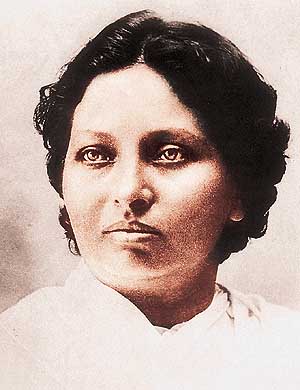
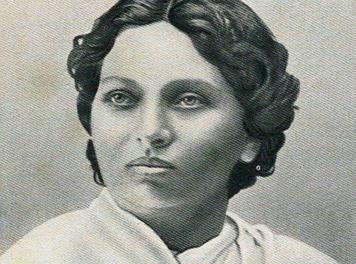

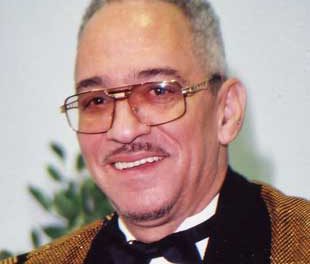



God made man and woman as one. Woman came out of man and so each cannot live apart from another. But man is not justified if he downtods and claims you are only a rib.